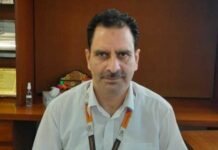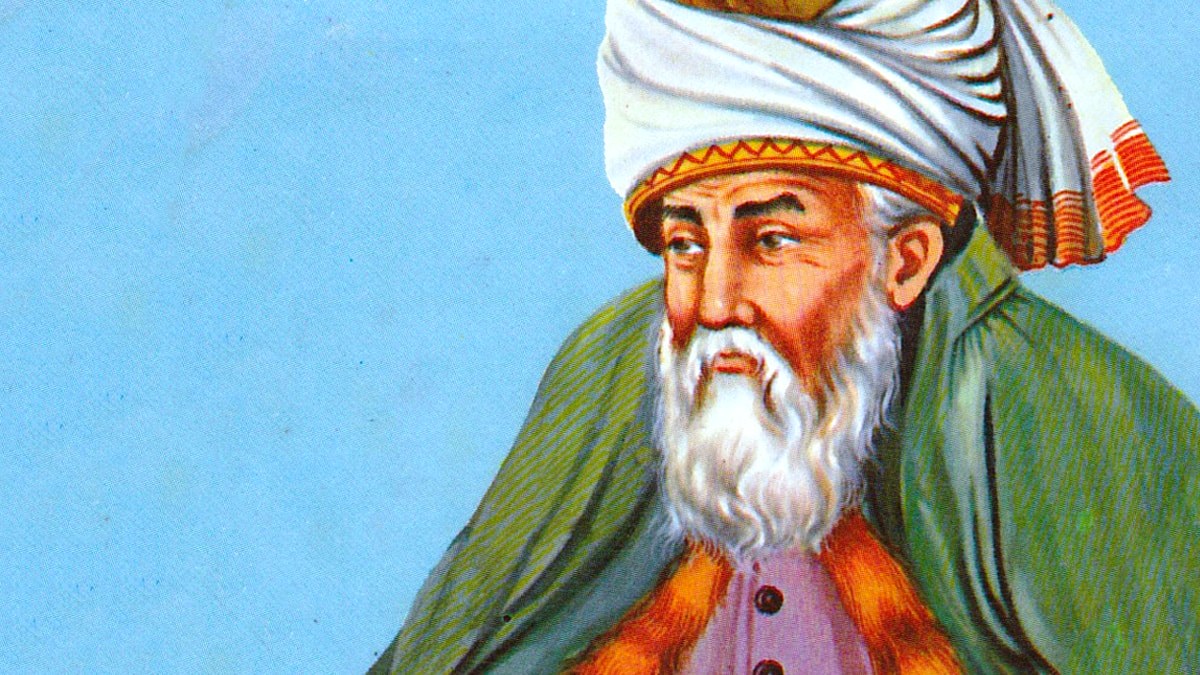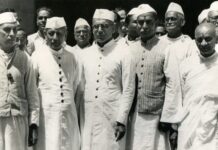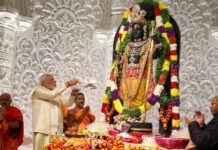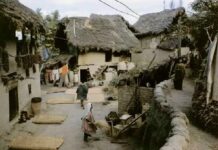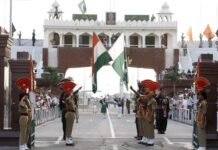Khursheed Mahmud Kasuri was Pakistani President General Pervez Musharraf’s Minister of Foreign Affairs (November 3, 2002 – November 15, 2007) and is considered an insider in his Kashmir initiative – the Musharraf Formula. His book, Neither a Hawk nor a Dove: An Insider’s Account of Pakistan’s Foreign Policy was published by Oxford University Press in Pakistan and by Penguin in India. Here, we reproduce part of a chapter that is missing in the Pakistani edition. This chapter dealing with the reaction of Kashmiri leaders to the four-point Musharraf formula is being added to the Urdu and Hindi translations of the book that will soon publish on either side of the divide.
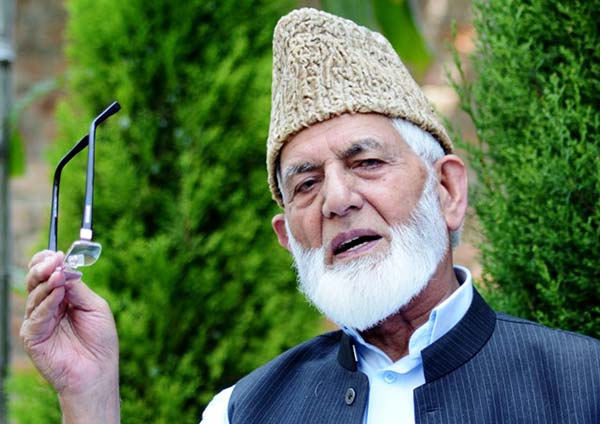
In earlier sections of the book, particularly in chapters 3 and 4, I have referred to various statements by important Kashmiri leaders in the Indian Administered Kashmir (IAK) including those of the Hurriyat, the JKLF and other parties. They indicate that the morale of the Kashmiri leaders had begun to rise as the dialogue between India and Pakistan began to gain momentum and reports of progress on the back channel started filtering through the media. All these statements are given in different sections of the book and need not to be repeated here. Statements by some important leaders, however, need to be highlighted in this round-up.
In early 2007, Mirwaiz Umar Farooq, the founding Chairman of the APHC (All Parties Hurriyat Conference) was quoted by many Pakistani and Indian newspapers as having said that the time to end the armed struggle in Kashmir had come as “it has achieved nothing but graveyards.”[i] This was a strong statement indeed, and only a courageous leader could issue a statement of this nature, knowing as he did, that hardline elements would not like such a stance, since such elements felt that there was no need for a change in policy despite the sacrifices of tens of thousands of Kashmiri lives and the failure of many wars (and the repeated occurrence of near-war situations) between the two countries to resolve the Kashmir dispute. The reason for a more pragmatic approach adopted by Mirwaiz Umar Farooq is perhaps his greater exposure to the attitude of the international community. I used to frequently see him and some other Kashmiri leaders at meetings of the OIC Contact Group on the sidelines of the ICFM (Islamic Conference of Foreign Ministers) or the OIC (Organization of Islamic Countries) Heads meetings.
It was probably his awareness about the ineffectiveness of the UN, and the international community generally, in resolving the issue of J&K that during his visit to Pakistan in 2007, while leading a delegation including Professor Abdul Ghani Bhatt and Bilal Lone, he expressed his disappointment at the United Nations’ failure to resolve the Kashmir issue. He urged Pakistan and India to take more initiatives.[ii]During his visit, Mirwaiz, addressed a joint press conference with Azad Jammu and Kashmir Prime Minister Sardar Attique Ahmed Khan (son of the legendary Kashmiri leader Sardar Muhammad Abdul Qayyum Khan, also known as Mujahid-e-Awal). Both rejected a solution that did not involve the Kashmiri people. He said there was a complete consensus between the APHC and the Azad Kashmir government and both had agreed that war was not a solution.[iii]
The leader of the pro-independence JKLF Yasin Malik’s sincerity and serious commitment to the Kashmir cause make him a compelling advocate of his people. He has been arrested numerous times and in 2005 during the APHC delegation’s visit to Pakistan, he enthused that ‘though he had crossed the LoC eight times previously, he openly walked over the friendship bridge across the LoC on this visit’.[iv] He said in early 2008 that he believed that violence had decreased by 90 percent since the peace process was started in the valley. “I think the dialogue process was supported by all corners”.[v] In May 2007 while supporting the peace process, the JKLF Chairman addressing former Prime Minister Atal Bihari Vajpayee, in an open letter ‘drew his attention to the statements and signals by him and his party colleagues which were not at all conducive to the peace process. “This peace process is your baby and you cannot call it an illegitimate child,” Yasin Malik reminded Atal Bihari Vajpayee while urging him to play the role of the elder statesman of South Asia.’[vi]
His marriage to a Kashmiri girl of Pakistani origin made headlines in both the countries. I remember that earlier during our own discussions in Pakistan as well as with Indian and Kashmiri leaders, I had pointed out the human dimensions of what we were attempting to do. I emphasized that an increased people-to-people contact between Kashmiris on both sides would cement relationships between the younger generations; even marriages would take place. Later on some high profile marriages across the LoC did take place. For example, the famous Kashmiri leader Yasin Malik married a Kashmiri girl of Pakistani origin in Islamabad. Earlier, Sajjad Gani Lone had married the daughter of Amanullah Khan, leader of the Jammu & Kashmir Liberation Front. When Yasin Malik got married, I thought to myself that what I had been predicting was now becoming a reality.
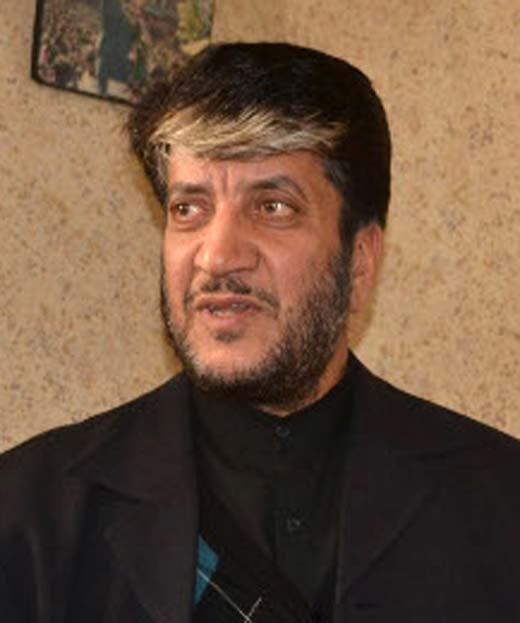
Syed Ali Shah Geelani showed a lot of affection and warmth towards me personally and I spent a lot of time trying to convince him (on one occasion almost three hours in one sitting) about the benefits of the broad framework on Kashmir being discussed by Pakistan and India on the Backchannel. Unfortunately, however, I could not convince him that the framework, at least in the first instance, was the best that could be achieved. I somehow felt foolish and embarrassed trying to explain the real politik of the situation to a man who had unflinching faith in his cause and wanted Kashmir’s merger with Pakistan. He often expressed his views frankly on Pakistan’s internal politics and opposed the ongoing Wana Operations as well as Pakistan’s alliance with the United States. Syed Ali Shah Geelani’s tone was aggressive as he criticized Pakistan’s policies on a number of counts, including the proposal to start a bus service between Muzaffarabad and Srinagar. He described President Musharraf’s four-point agenda as vague. Notwithstanding all this, I believe that, had our government’s tenure not ended, and, given more time, we might have succeeded in convincing him of the immediate benefits of this framework for the ordinary people of Jammu and Kashmir. Interestingly, however, while some hardliners in Pakistan opposed the Joint Statement of Jan, 2004, he felicitated both President Musharraf and Prime Minister Vajpayee for their statesmanship after the Joint Statement.[vii]Details on the reactions to the Joint Statement are given in Chapter 3.
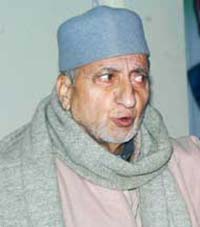
Professor Abdul Gani Bhat, a former President of the Hurriyat Conference said, “we strongly believe that talking alone will take us somewhere. Let us all know that the talks should not be held for the pleasure of it…but for a cause and a purpose.”[viii] Maulana Abbas Ansari is a top Shia leader from a reputed religio-political clan of Kashmir. He like other leaders of the APHC supported the peace process[ix], while at the same time he, like Syed Shabbir Ahmed Shah and Yaseen Malik of the JKLF, continued to emphasize everywhere that Kashmiris needed to be associated with the talks.[x]
It may be pertinent to mention here that, earlier, the then President of Azad Jammu & Kashmir (AJK), Maj. Gen. Sardar Muhammad Anwar, Prime Minister, Sardar Sikandar Hayat Khan[xi], and the Opposition Leader, Barrister Sultan Mahmood had all welcomed the outcome of the Joint Statement calling it a significant move towards resolving all outstanding issues including Kashmir and establishing durable peace in the region.[xii]
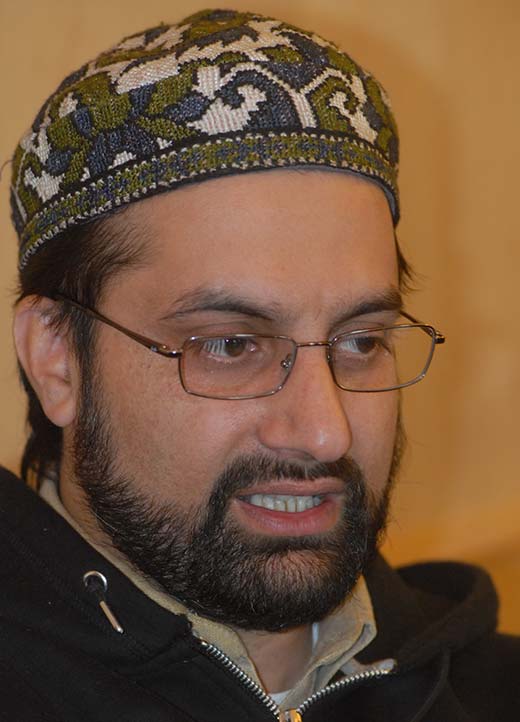
Non- APHC leaders like Mufti Mohammad Sayeed and Mehbooba Mufti of the PDP and President of the National Conference, Omar Abdullah also supported the peace process. [xiii]They emphasized on many occasions that their participation in elections in Jammu and Kashmir did not mean that they had accepted the current status but felt that the status of Jammu and Kashmir needed to be resolved by Pakistan, India and the Kashmiris.
I have already indicated in different sections of this book by quoting leading Pakistani, Indian and international analysts, commentators and writers that, overwhelmingly, the people in Kashmir, Pakistan and India, as well as the mainstream media had hailed the peace process. These details have been given in the appropriate sections.
End Notes
[i] The Hindu (Jan 27, 2007) Mirwaiz meets Jihad Commanders
[ii] The Dawn ( Jan 20, 2007) UN has failed on Kashmir: Mirwaiz
[iii] Ibid. Also, Arab News (Jan 20, 2007) Kashmiri Leaders Want More Say in Peace Process
[iv] ‘A momentous event’, Dawn, 4 June 2005.
[v]Daily Times (March 16, 2008) Pakistan, India should expedite peace process, says Yasin Malik
[vi] The Hindu (May 10, 2007) Peace process is your baby, Yasin Malik tells Vajpayee
[vii]‘The Wine after Hemlock’, by Zafar Mairaj, Outlook Magazine, 19 Jan. 2004.
[viii]”We are always available for Prime Minister”: Hurriyat (Jan 8, 2007) Online Source:
http://www.oneindia.com/2007/01/07/we-are-always-available-for-pm-says-hurriyat.html
[ix] Reuters (April 28, 2004) Kashmir Separatist Pins Hope On Vajpayee, Musharraf
[x] The Dawn, ( Nov 12, 2004) ‘Solution of Kashmir issue vital for peace’
[xi]The Dawn (Jan 8, 2004)Musharraf to brief Kashmiris today
[xii]The Dawn (Jan 8, 2004) Kashmiri leadership’s role in talks sought
[xiii]The Hindu (Feb 12, 2007) Peace process should be part of a broader framework: Mufti
and Indo Pak ties important than polls: Omar (20 June 2007) Daily Excelsior, Available online www.ipcs.org/pdf_file/news_archive/jun_07_kashmir.pdf


